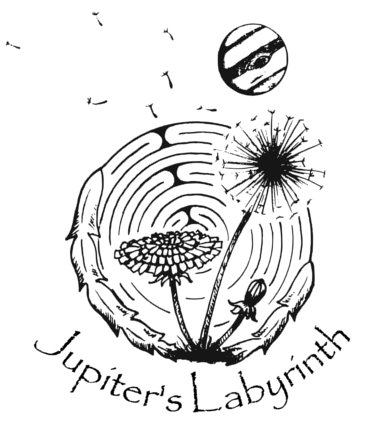Typically when we hear the word “allopathic” we think of western medical doctors.
But if we’re being honest any health and wellness practitioner of any background can treat their clients allopathically.
A chiropractor who has you coming in every week for an adjustment but doesn’t show you any exercises or postures to practice at home to strengthen and encourage a properly aligned spine is treating allopathically.
A western doctor who sees someone for acid reflux and sends them off with Prilocec without discussing the myriad of foods and lifestyle habits that directly affect their condition is treating allopathically.
And the herbalist who sees someone for chronic back pain and gives them an herbal anti-inflammatory blend without discussing any other supportive measure for their condition is treating allopathically.
Don’t get me wrong we are incredibly blessed to have allopathic options. Treating symptoms is an important part of our healing.
In the same breath, how long does simply treating a symptom serve you? In my experience, usually not very long. Why? Because a symptom is really just that. A symptom is a message from our body saying “Hey there, something’s not quite right over here. You wanna pay attention please?”
These symptoms will start off slowly but any symptom that is ignored or simply treated with a quick fix for too long will eventually turn into something much more serious.
Perhaps it starts with a few burps after that pepperoni pizza. Then a month later after lots more pepperoni pizza ( and other highly acidic foods) you start to experience a bit of heart burn. You take a few Tums and you feel better. After another month you continue to experience heartburn but now you need to take more Tums to feel relief. Finally you start to feel a lump in you throat that has formed, like it needs to be cleared only you can’t clear it. At this point you realize something may be really wrong and you need to go and see someone for guidance.
In this particular situation one health care practitioner might prescribe a stronger acid reducer to treat your symptoms and send you on your way telling you to check back in if the lump in your throat continues.
Another practitioner again may give you a stronger acid reducer and tell you to try to reducing coffee, heavy fats and alcohol to alleviate the symptoms and that if that doesn’t make a difference then you’ll probably have to be on an acid reducer for the rest of your life. Yet another practitioner may give you a complete list of highly acidic foods that are likely to cause heart burn (which looks like a typical American diet) , discuss which ones are in your diet and encourage you to take a break from them to see what happens. They may also encourage you to drink lots of water between meals, increase alkalizing foods like green veggies, try some naturally lubricating and soothing non-addicting alternatives to acid reducers that will calm the acid and inflamed esophagus to take after meals to calm your symptoms (Slippery Elm, Marshmallow Root, Comfrey Leaf, Licorcie Root) and also have you document your food intake for a month to access changes.
The patient that saw that first practitioner will most likely need to continue to fill their prescriptive acid reducers for a lifetime if they don’t look at their diet or lifestyle for added support and may see their symptoms become much more serious in the future.
The patient that saw the second practitioner may very well have found that eliminating heavy fats, coffee and alcohol helped them and they only need to take their acid reducer with their pepperoni pizza. Or perhaps they eliminated coffee, heavy fats and alcohol and still experience heart burn and will continue to have to take acid reducers for the rest of their lives again (with possible future symptoms) if they choose not to look at the bigger picture.
And the third patient- granted has the most responsibility and work to do to get to the bottom of their heart burn, but, if they do their homework, they might find that their love of Reese’s peanut butter cups, diet soda and pepperoni pizza were the culprits for their heart burn and find that when they eliminate those things, they don’t experience any symptoms. And on the occasion they want to indulge they know to drink extra water and have slippery elm and peppermint tea afterwards to calm any irritation or reflux symptoms.
All three of these patients are treating their symptoms which offer them variations of relief. But the third who was given a quick fix for the symptoms as well as a slew of information to research on their own learned the most from their illness. They were able to tune into their body’s unique needs and tendencies to find out the triggers that created the heart burn so that in the future they could make conscious decisions about their health.
The other two patients not being offered any ( or not very much) information aside from other types of acid reducers and a few possible food culprits, have been left in the dark.
The third patient was EMPOWERED by their practitioner to take responsibility for what was going on in their body and were asked to take part in discovering the deeper reason for their symptom- joining in the healing process while patient 1 and 2 sit with the power still in the lap of their doctor telling them to take an acid reducer.
This being said there may be some of you reading this that would prefer taking a pill or herbal tincture for the rest of your lives if you could still indulge in your favorite food and drinks! And I am by no means criticizing this personal decision. We are all on our own healing path- and hey we ALL need a quick fix once in awhile.
But for those of you who want more than a pill, tea, tincture or treatment to continue to “correct” an ongoing imbalance and for those of you who want to go deeper, learn more, tune into your own unique needs, I encourage you to seek out a doctor, acupuncturist, herbalist, naturopath or chiropractor who will teach you, who will give you tools and invite you to do the healing work with them together as a team. Ditch the allopathic treatment so many of us have taken as the “end all be all” of our health for too long.
The more interest and active participation each of us takes in our health, the more powerful and life changing and successful our healing path will be- no matter what.
Don’t be afraid to ask your practitioner for further guidance- books? videos? exercises? recipes? stress support? Ask questions! Does something not make sense that your practitioner is saying- or worse a protocol is offered just doesn’t “feel right” to you? Question it! Ask for alternatives- don’t take ANYTHING- pill, herb, treatment, surgery- as the END ALL BE ALL of your symptom or condition. There may be other supportive information or alternatives that haven’t been discussed yet.
Sometimes it’s our silence that will often convey to our practitioner that all you want IS just a magic pill. Let them know that’s not true! If we don’t ask for anything else or question protocols, this is what we will may always get. Advocate for yourself and your health! YOU are the boss of your body and your healing path.
When I meet with clients no matter what health imbalance it is, if they don’t leave my office each time with more information about how they can better their health on their own terms in their own time in their every day lives then I’m not doing my job.
Finding your own perfect health each and every day is a journey that must be taken by the individual. As a practitioner, if I’m not offering guidance, support, encouragement and empowerment to each and every person that comes into my office then I’m doing my clients a disservice. The most important part of healing is the individuals participation.
When each person takes time to care of themselves their world changes for the better.
Do I send my clients home with teas, tinctures and other remedies to use? Absolutely. But that’s not all. I send them home with lots of homework to do for themselves. And when this “work” is offered in a way that is easily applied to the individual’s life where they can make it work and see the positive results- it empowers them to not only continue to practice self care but to incorporate even more into their every day lives. Simple allopathic practices do not offer this kind of opportunity for growth.
My mission is and has always been to empower, educate and excite people about the many different ways that we can take better care of themselves. Health is not outside ourselves. Health is not solely in your practitioner’s hands or in a simple medication or remedy, it’s inside of you. Knowing this and reminding people of this, to me, is the most important part of our health. And THIS is why I’m not an allopathic herbalist.
Want to work together? I’d love to chat.
XO Amanda
Why I’m NOT An Allopathic Herbalist


I can SO deeply relate to this. I am a pharmacist who sees and is saddened everyday by all the quick fixes prescribed. My goal is to someday bring together this world with the alternative world of healing so people have a greater awareness of their options. Thank you, Amanda for sharing this beautifully written piece! —Kristine
Thank you Kristine! Yes! There are so many pieces of the “wellness puzzle” and they really can all work together. I’m so glad you can relate. Thank you for your kind words and for sharing.. Keep up the great work:) xoA